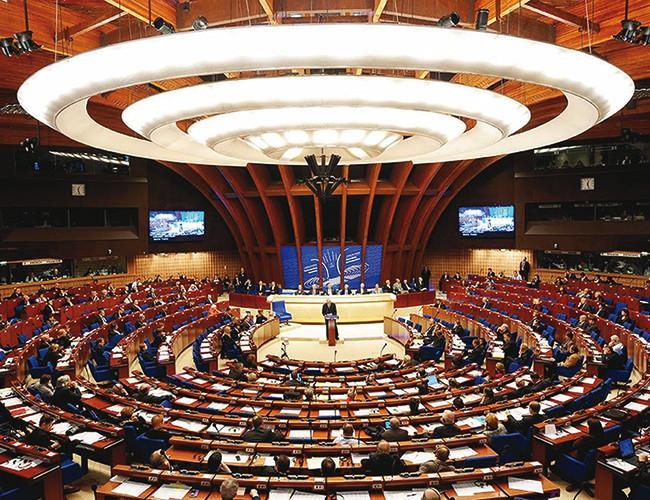
The Council of Europe (CoE) is examining the latest state of emergency decrees issued by the Turkish government, COE Director of Communications Daniel Holtgen has told Hürriyet Daily News, amid concerns that the decrees enforce terror and coup suspects to wear uniforms in courts and grant impunity to civilians who fought against the July 15, 2016 coup attempt and its aftermath.
The body is monitoring whether the latest state of emergency decrees are compatible with the European Convention of Human Rights (ECHR), Holtgen said on Dec. 28.
“At this stage, there’s only an assessment on the new decree laws, because there are some issues. Secondly, depending on the assessment, it’s likely that we will be in touch with the Turkish authorities to ask for further information and clarification,” said Holtgen, who is also the spokesperson of CoE Secretary-General Thornborn Jagland.
“Depending on that, thirdly, we may see need for further dialogue and suggestions with the Turkish authorities,” the spokesperson added.
All suspects and convicts under arrest for “crimes against the constitutional order” and for violating anti-terror laws in Turkey will have to wear single-type uniforms during court appearances, according to a government decree published in the Official Gazette on Dec. 24.
According to the decree, the defendants will either wear brown or gray uniforms during their court appearances.
The decree 696 has drawn criticisms for an article which grants immunity to civilians who took part in thwarting last year’s attempted takeover.
While ruling Justice and Development Party (AKP) officials insist the regulation only applies to those involved in fighting the coup attempt on July 15, 2016 and the day after, July 16, opposition groups say the article is vaguely-worded and could be misinterpreted, which could lead to violent actions taken by civilians in the name of “combatting a coup attempt.”
The council has been monitoring the decree laws introduced since the state of emergency was declared in Turkey on July 20, 2016.
If Turkish nationals, who claim they suffered by the decree laws, want to bring their cases to the European Court of Human Rights, they will be rejected by the court if they have not exhausted all legal avenues in Turkey.
But because the applicants affected by the emergency decrees cannot bring their cases to the Constitutional Court of Turkey, which has said that it cannot make any rulings over the decrees, the CoE recommended Turkey last year to establish a commission to overlook emergency decrees to serve people complaining about the decrees, saying it is a national remedy necessary.
In January, the Turkish government formed the State of Emergency Procedures Investigation Commission to evaluate and makes decisions on the applications filed by people affected by the decrees.
Within a year, the commission has received many complaints of removals or dismissals from civil servants, education institutions, closed associations, foundations, trade unions, federations, private health institutions, higher education institutions, privately owned radio and TV channels, newspapers, magazines, news agencies, publishing houses and distributors.
The commission has so far responded to a few of the applications, reinstating some of the applicants and rejecting others.